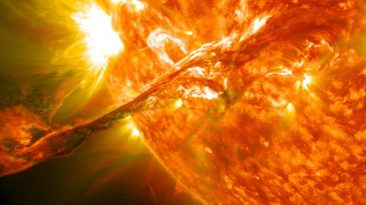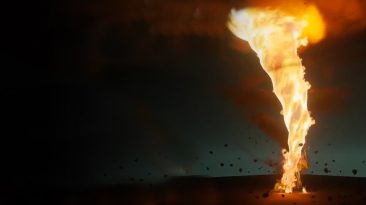You’ve seen what a nuclear meltdown can do to your body in the movies. It can cause strange deformities, radiation burns, and extra body parts. But how much of that is true? Maybe you should’ve asked that before you bought a house so close to the nuclear power plant. Because now the warning sirens are blaring, and you’re running out of time.
About 6 million Americans live within a 16 km (10 mi) radius of a nuclear power plant. And according to the Nuclear Regulatory Commission, if you’re one of those six million people, you’re living in the danger zone.
With the United States being home to over 100 reactors, there is about a 50% chance of at least one accident happening in the next 25 years.
So what should you do when it happens? Should you evacuate or stay inside? Why would calling your family be a bad idea? And how could you avoid radioactive dust?
But before we get too ahead of ourselves, let’s learn a bit more about what we’re dealing with. We produce nuclear energy by splitting uranium nuclei using nuclear fission. If the heat it produces begins to melt the nuclear reactor’s core and the containment vessel, it could cause a nuclear meltdown and release radiation into the environment.
One of the most famous nuclear meltdowns happened in Chernobyl, Ukraine. In 1986, a power surge during a systems check destroyed a nuclear power station, and released vast amounts of radioactive material into the environment. In the following years, over 300,000 people were evacuated. This devastating event killed 28 of the site’s workers within four months of the disaster, and it was responsible for nearly 4,000 fatal human cancers. So what could you do to avoid the same fate?
Step 1: Stay Inside
It is best to stay inside a building as cars will not protect you from radiation. The light metals and glass in vehicles don’t compare to brick or concrete walls. You can still be exposed to gamma rays and other radiation inside a car or bus. However, if emergency officials tell you to evacuate, it is best to leave by car while keeping your windows up and ventilation system off. Emergency officials will also outline the safest evacuation route depending on the wind’s speed and direction and the magnitude of the disaster.
Step 2: Gather Materials
If you live within the 16 km (10 mi) radius of a nuclear plant, you will receive preparation materials every year. If you’re outside that radius, you still should know what to do and prepare for a nuclear incident. It would be a good idea to have a two-week stockpile of food and water. And extra batteries for your phone or other communication devices would be important too, as you don’t know how long you’ll be away from home.
You’ll also need to have basic medical and sanitary supplies, including toothbrushes, toothpaste, shampoo, soap, feminine hygiene supplies, deodorant and a well-equipped first aid kit. And having potassium iodine handy could be important too. It can reduce the amount of radioactive material your body absorbs. Your local pharmacy should have it.
Step 3: Don’t Phone a Friend
Evacuate with the people near you, as you don’t know if your friends and family are contaminated. Although contamination is not contagious like a disease, if you or others have not correctly disposed of the clothing you were wearing at the time of the disaster, there may be radioactive dust or material on you that can affect others. Also, it’s important to leave the phone lines open for first responders.
Step 4: Mask Up
Remember all those masks you’ve been wearing to avoid COVID-19? Use them if you have to go outside during a nuclear meltdown or radiation emergency. Cover your nose and mouth with a mask, cloth or towel to avoid breathing contaminated air.
Step 5: Listen to the Authorities
If you’re within an Emergency Planning Zone, you’ll be alerted by a siren, a tone alert on your radio, or an automatic call from a public safety warning system. The evacuation orders will tell you to go to shelters with basic food, water, medicine and sanitary necessities. You should not return home until authorities tell you to. They’ll test to make sure the levels of radioactive contamination in the air, water and soil are safe. Living through a nuclear meltdown may sound like a nightmare. But it could be worse. At least it wasn’t a nuclear bomb. Could you survive all the additional dangers that would come with that?
Sources
- “If Terrorists Attack Nuclear Power Plants: 10 Ways To Survive A Nuclear Meltdown | Secrets Of Survival”. Secrets Of Survival. Lawrence, Mark. 2019.
- “Radiation Health Effects | US EPA“. 2014. US EPA.
- “How Safe Is Nuclear Power? A Statistical Study Suggests Less Than Expected“. 2022. Bulletin Of The Atomic Scientists.
- “What Do I Do In A Nuclear Emergency?“. 2022. NRC Web.
- “Hps.Org“. Health Physics Society. Baes, Fred. 2022.

















